5000km on the road 2025. Part I- Arizona
Discussion
I will divide this thread into two parts so it does not get too tedious and boring .
I had flown down to Arizona, leaving an unusually snowy Canada for this time of year, my street heavily snowed in.
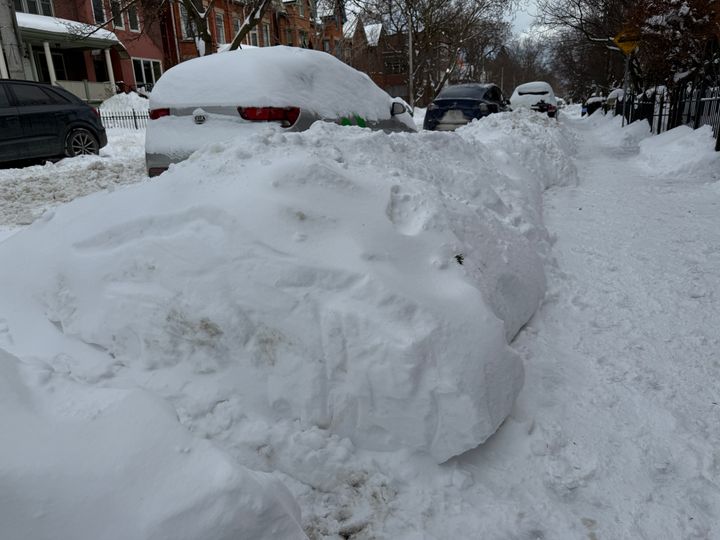
However, It was time to head back up North to Canada soon for the season, and that meant preparing the local cars for the 120F heat in which they would be sitting until October.
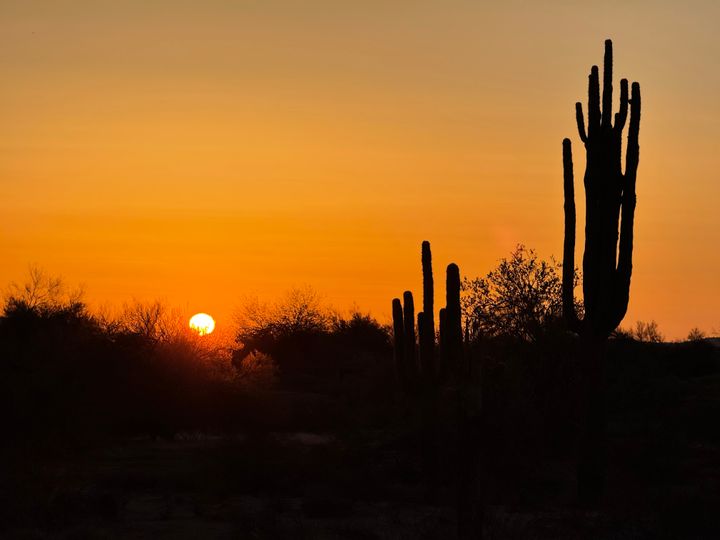
THE SL500 is now 23 years old, 31,000 miles. Had it serviced and detailed , ABC suspension fluid changed, some proper leather treatment, and have some tire cradles to avoid the flatspotting that occurred in the past. The Jeep is a relatively simple item, just needed the usual fuel stabilizer and a quick clean.

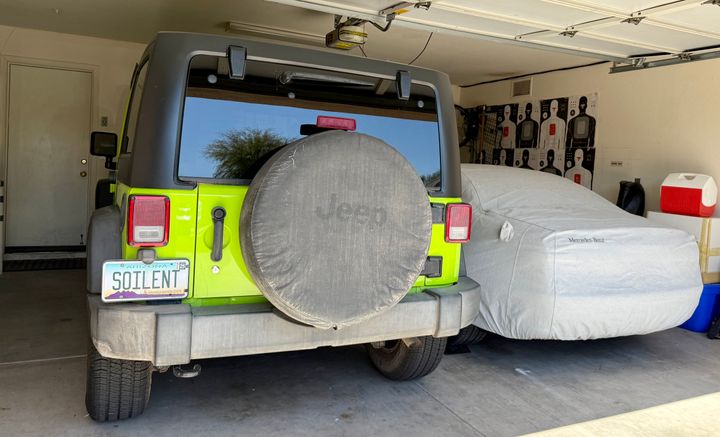
The Panamera ST was the road car from then on and for the trip North, and it needed some wiring fixes as it had been nibbled by desert rats in the driveway, quite a common issue.

Before heading out on the longer trip, some visitors visited and we decided to do a run up to Monument Valley ( about four hours straight), but do a detour through Winslow, as there is a very interesting railway hotel there called La Posada that is surprisingly inexpensive and worth a night’s stay. The main line runs right along the side of the hotel.
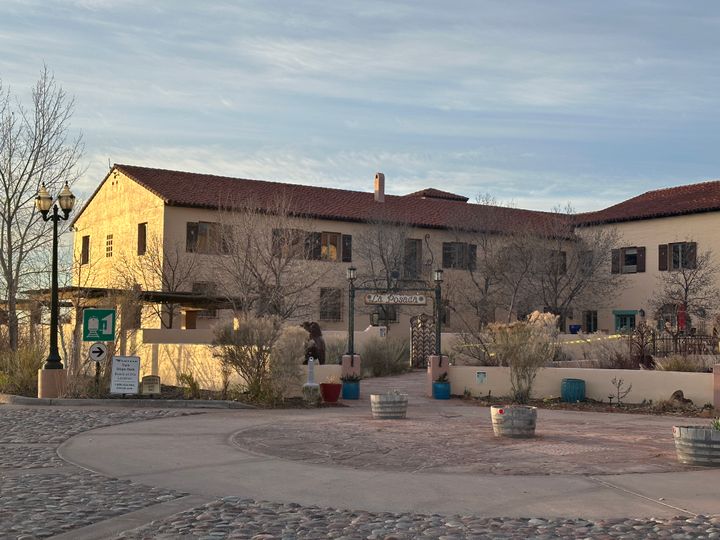
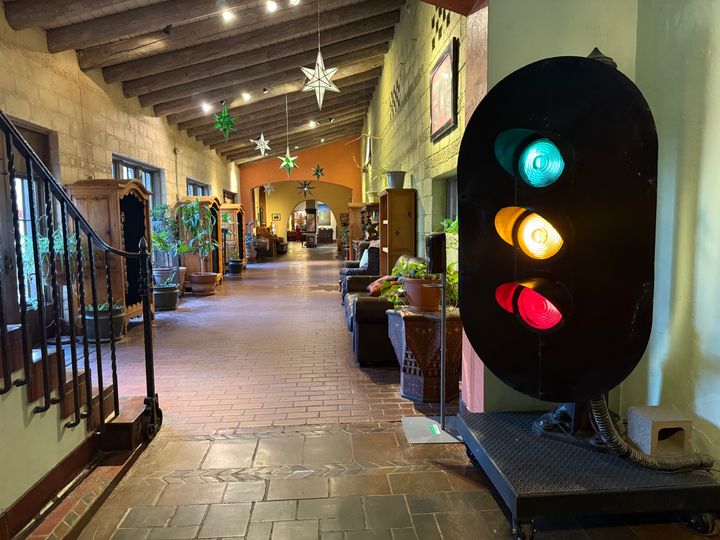

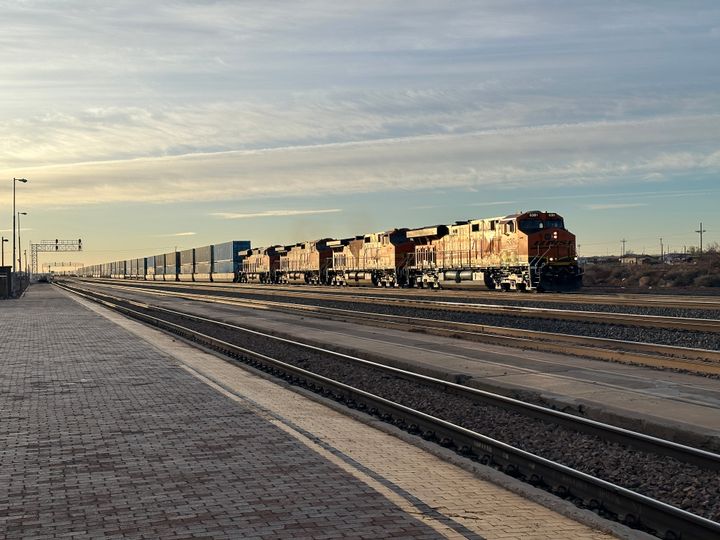
Next morning we headed fro monument Valley.I have been up to the Monument Valley area many times and knew the while area quite well. Or, so I thought.
I had flown down to Arizona, leaving an unusually snowy Canada for this time of year, my street heavily snowed in.
However, It was time to head back up North to Canada soon for the season, and that meant preparing the local cars for the 120F heat in which they would be sitting until October.
THE SL500 is now 23 years old, 31,000 miles. Had it serviced and detailed , ABC suspension fluid changed, some proper leather treatment, and have some tire cradles to avoid the flatspotting that occurred in the past. The Jeep is a relatively simple item, just needed the usual fuel stabilizer and a quick clean.
The Panamera ST was the road car from then on and for the trip North, and it needed some wiring fixes as it had been nibbled by desert rats in the driveway, quite a common issue.
Before heading out on the longer trip, some visitors visited and we decided to do a run up to Monument Valley ( about four hours straight), but do a detour through Winslow, as there is a very interesting railway hotel there called La Posada that is surprisingly inexpensive and worth a night’s stay. The main line runs right along the side of the hotel.
Next morning we headed fro monument Valley.I have been up to the Monument Valley area many times and knew the while area quite well. Or, so I thought.
There is a long-established hotel there called Goulding’s Lodge which also has cottages and full-size houses there which are fully equipped; just bring your own food. I always stay the the same house (the Hill House) that overlooks the valley and is very comfortable, three bedrooms and lots of space.View here:
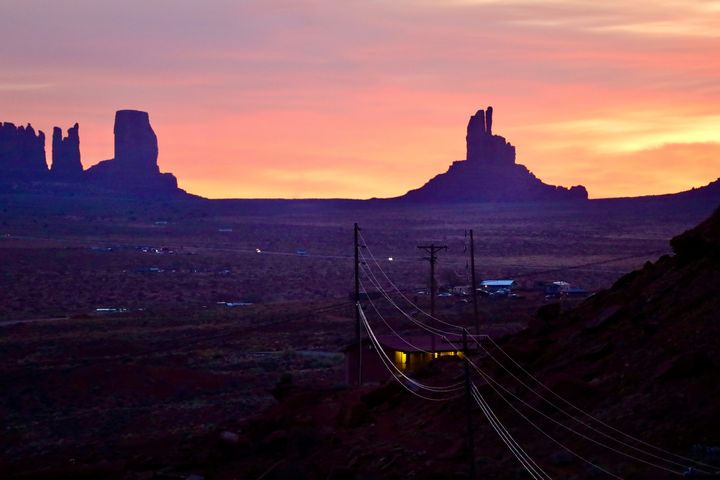
Monument Valley is in the centre of a Navajo reservation about the size of West Virginia, and the tri coebllectively owns all of the land. There are about 300,000 Navajo spread across the area, some in towns and others in remote settlements.
Took my usual morning drive around the valley state park which is not difficult for any car with reasonable clearance. Certainly does not need a 4x4. The park was uncrowded for a relaxing run, and later took a few side trips to adjacent sights.
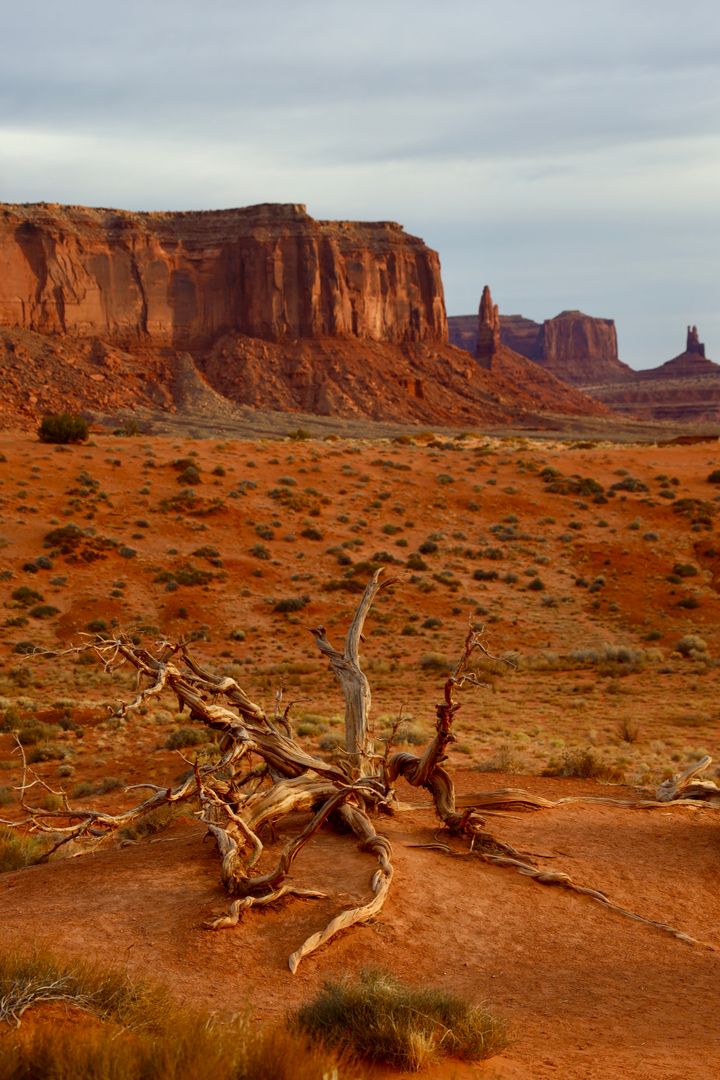

However, OH had researched Navajo Guides, and we arranged to engage the very best person available, an elder called Donn Mose.
He arrived in a older Chevy Suburban SUV at 8am next morning, bang on time. For three and a half hours he held our attention every second, explaining the history and customs of the Navajo, how they fit into the tribal system, where they came from and their family traditions and values. We entered the valley in the same way as I had done in every visit, but shortly he detoured into a guides only trail. This was a very different trail and quickly deteriorated into fine,flour-like sand that required great skill to drive on , though he did it one-handed as he explained the sights. I would have sunk my Jeep in minutes.
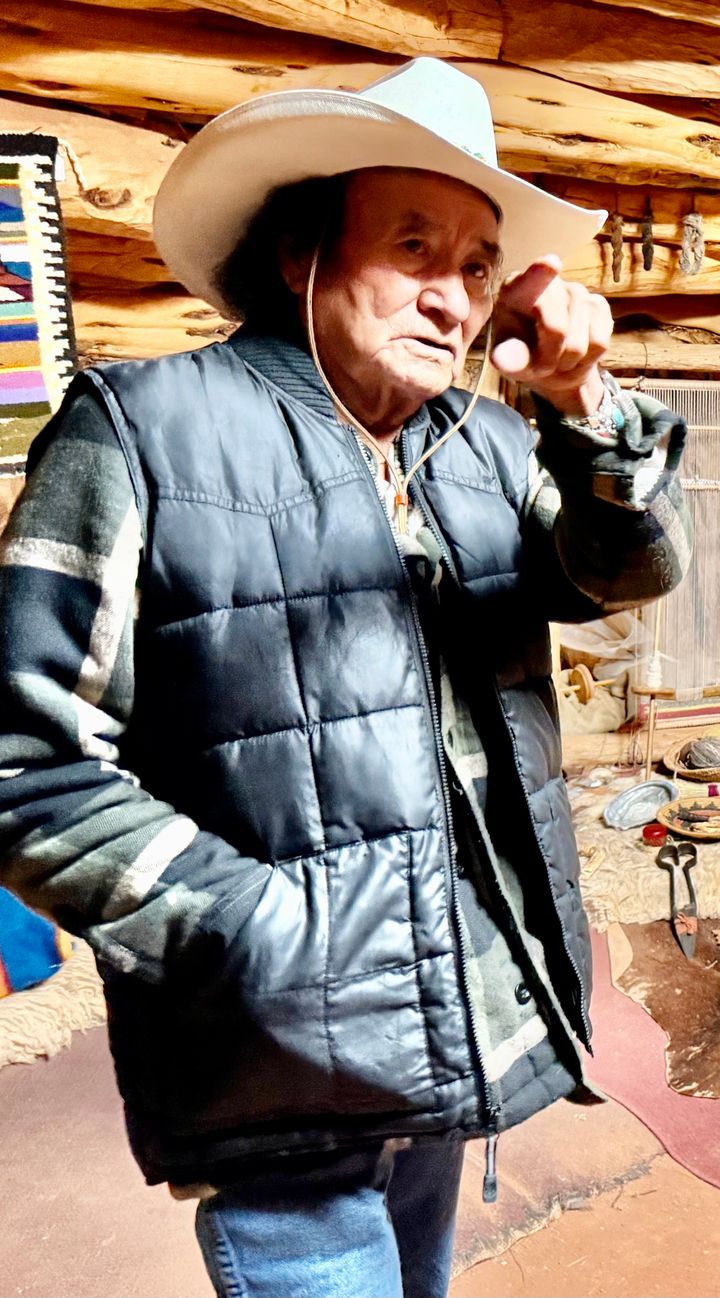
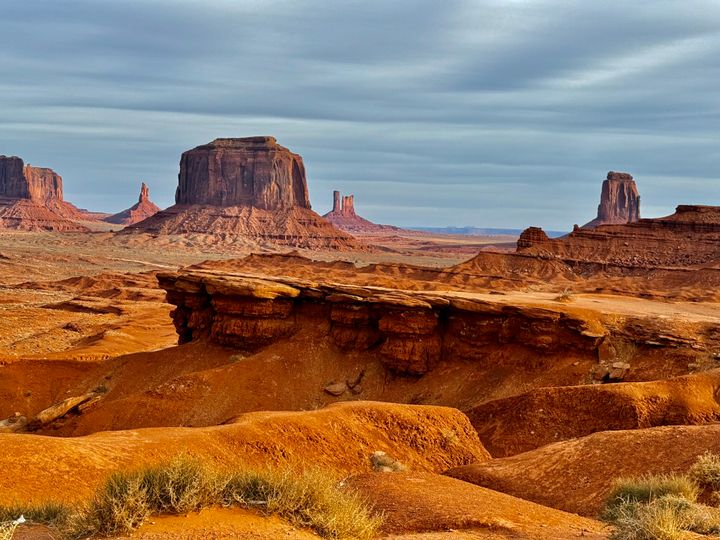
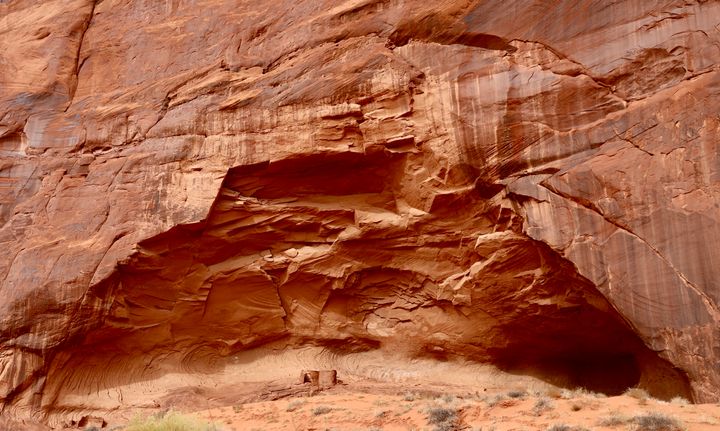
Donn explained the the Navajo have no written language, just oral tradition. He had been concerned about the dying of there culture and approached Rosetta Stone, the company that does the Language software. He developed a Rosetta Stone app for the Navajo Language.
He explained that he had been to Russia at the invitation of their government and had gone from Moscow to Siberia to meet the indigenous people there and discovered that there were many aspects of their language and physical appearance that was similar to himself.
There is a lot of evidence that the origin of the American Indians comes partly from migration from what is now Arctic Russia across the land bridge that once crossed from there to Alaska, (now gone and became the Bering Strait).
This part of the Valley also requires a guide as there are pristine petroglyphics from about 1100 BC from the people who once lived here, in some cases high over the Valley floor. Impressively, they have survived unmolested.

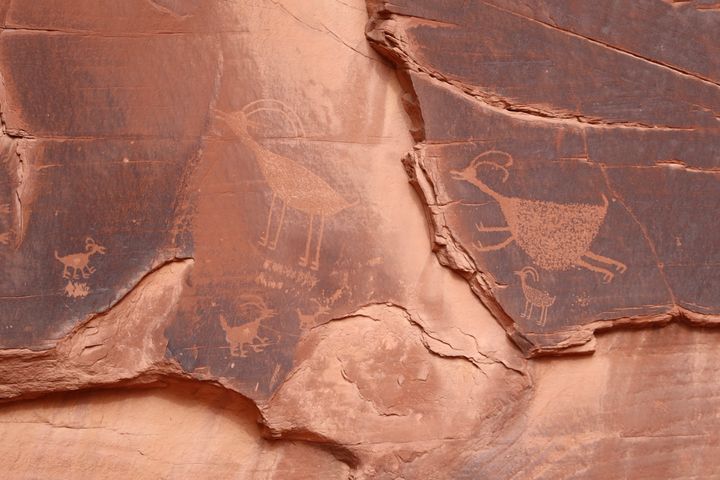
The geology here is different to the public part of the Valley. Donn explained that the whole Valley had been under there ocean and that erosion had formed a great part of it.
We stopped at a huge natural oculus and he explained how water had formed it. To illustrate he squatted down and formed the fine sand into a mound. Using nothing but a carefully poured bottle of water he demonstrated the process in miniature, never outshine the sand. It was an extraordinary thing.

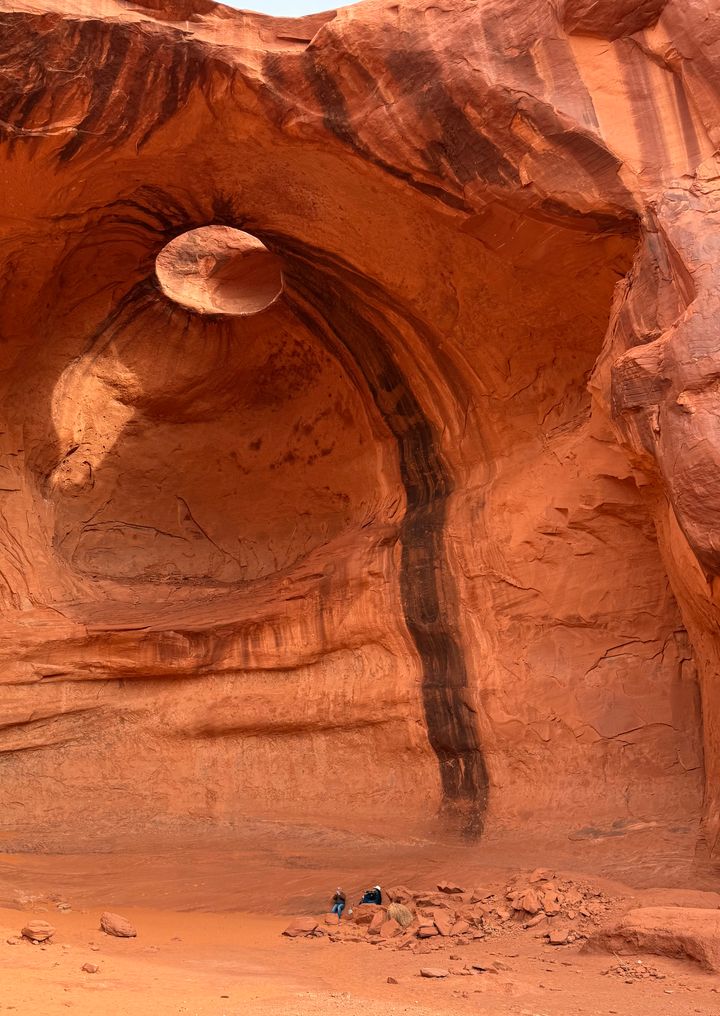
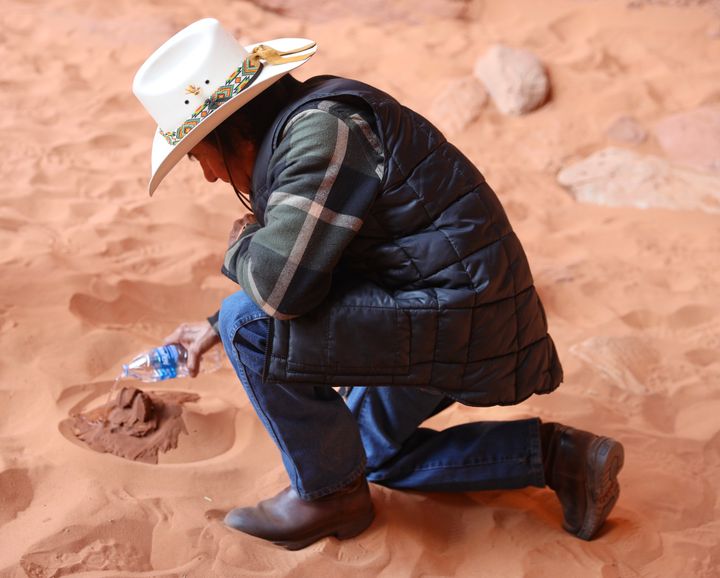
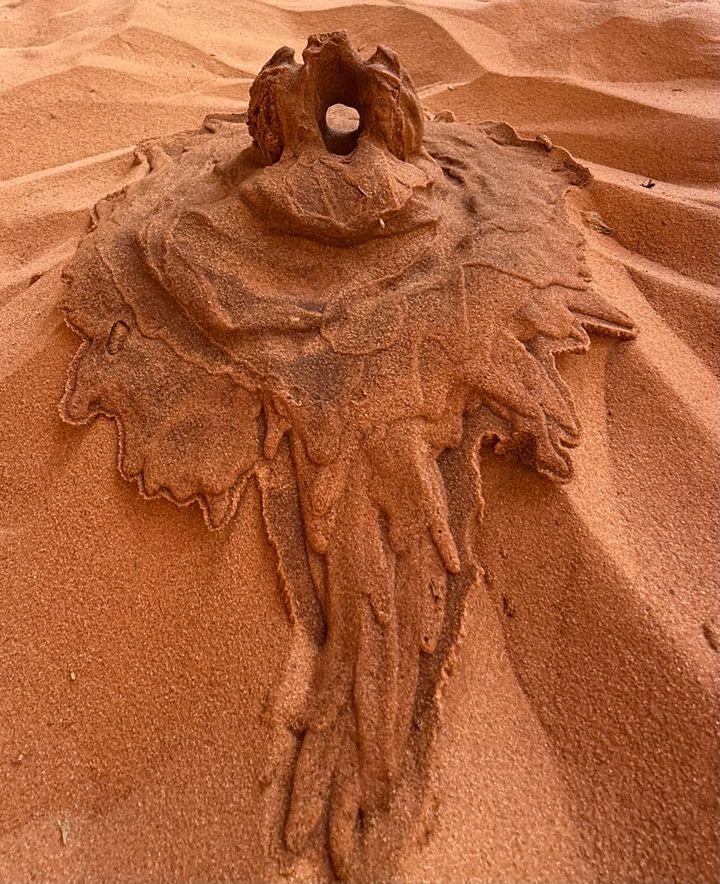
We then visited a small Navajo settlement to look at traditional Hogans, the Navajo houses which were made of birch logs and insulated with birch bark. People here is very poor and in periods of rain are virtually isolated. The Valley is a very hostile place for permanent residents.
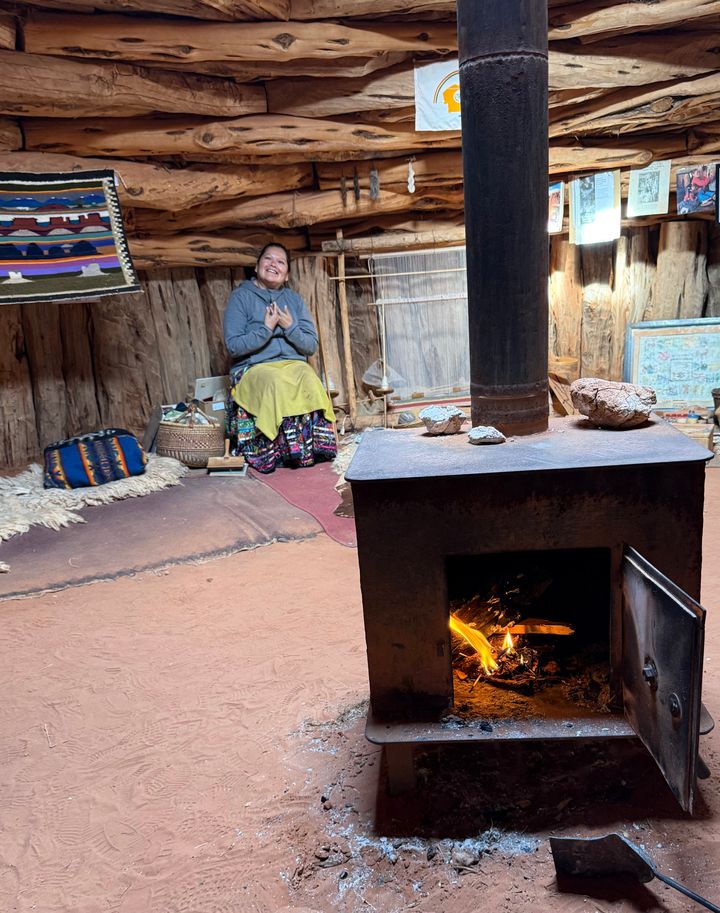
This area has many wild horses and feral dogs who seem to survive despite the conditions.
I learned more on this half day that I had in 12 years of coming to the valley.
However, it was time to head back down to the house as the long trek was not too far away.
Monument Valley is in the centre of a Navajo reservation about the size of West Virginia, and the tri coebllectively owns all of the land. There are about 300,000 Navajo spread across the area, some in towns and others in remote settlements.
Took my usual morning drive around the valley state park which is not difficult for any car with reasonable clearance. Certainly does not need a 4x4. The park was uncrowded for a relaxing run, and later took a few side trips to adjacent sights.
However, OH had researched Navajo Guides, and we arranged to engage the very best person available, an elder called Donn Mose.
He arrived in a older Chevy Suburban SUV at 8am next morning, bang on time. For three and a half hours he held our attention every second, explaining the history and customs of the Navajo, how they fit into the tribal system, where they came from and their family traditions and values. We entered the valley in the same way as I had done in every visit, but shortly he detoured into a guides only trail. This was a very different trail and quickly deteriorated into fine,flour-like sand that required great skill to drive on , though he did it one-handed as he explained the sights. I would have sunk my Jeep in minutes.
Donn explained the the Navajo have no written language, just oral tradition. He had been concerned about the dying of there culture and approached Rosetta Stone, the company that does the Language software. He developed a Rosetta Stone app for the Navajo Language.
He explained that he had been to Russia at the invitation of their government and had gone from Moscow to Siberia to meet the indigenous people there and discovered that there were many aspects of their language and physical appearance that was similar to himself.
There is a lot of evidence that the origin of the American Indians comes partly from migration from what is now Arctic Russia across the land bridge that once crossed from there to Alaska, (now gone and became the Bering Strait).
This part of the Valley also requires a guide as there are pristine petroglyphics from about 1100 BC from the people who once lived here, in some cases high over the Valley floor. Impressively, they have survived unmolested.
The geology here is different to the public part of the Valley. Donn explained that the whole Valley had been under there ocean and that erosion had formed a great part of it.
We stopped at a huge natural oculus and he explained how water had formed it. To illustrate he squatted down and formed the fine sand into a mound. Using nothing but a carefully poured bottle of water he demonstrated the process in miniature, never outshine the sand. It was an extraordinary thing.
We then visited a small Navajo settlement to look at traditional Hogans, the Navajo houses which were made of birch logs and insulated with birch bark. People here is very poor and in periods of rain are virtually isolated. The Valley is a very hostile place for permanent residents.
This area has many wild horses and feral dogs who seem to survive despite the conditions.
I learned more on this half day that I had in 12 years of coming to the valley.
However, it was time to head back down to the house as the long trek was not too far away.
Edited by RDMcG on Sunday 30th March 00:01
Edited by RDMcG on Sunday 30th March 00:03
Williams AZ is the last town on Route 66 before it was finally decommissioned and is also the terminus for the train up to the Canyon. As is often the case with 66 towns, there are all sorts of diners, souvenirs, attractions for the punters.
….and then there is a newer establishment.
The Poozeum.
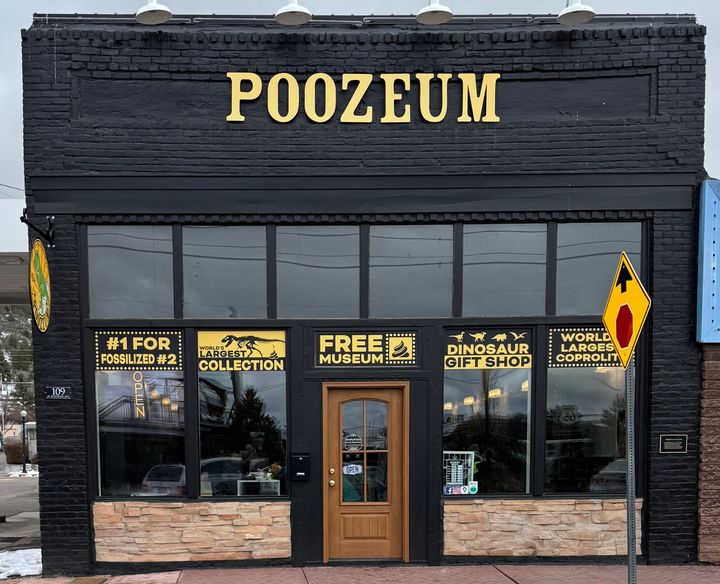
Ever heard of a Coprolite?..well, it is fossilized dinosaur feces.
The museum and store houses all sorts of real examples including the Guinness Book of records example of the largest one ever found.

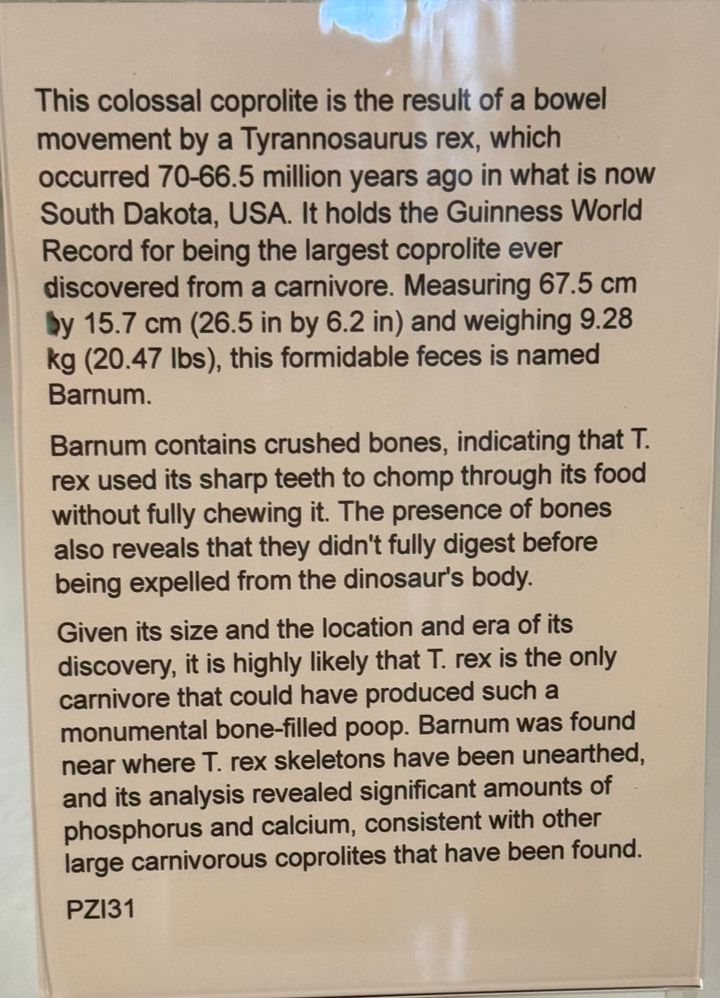
A bronze sculpture ( not by Rodin) entitled The Stinker greets you on entry.
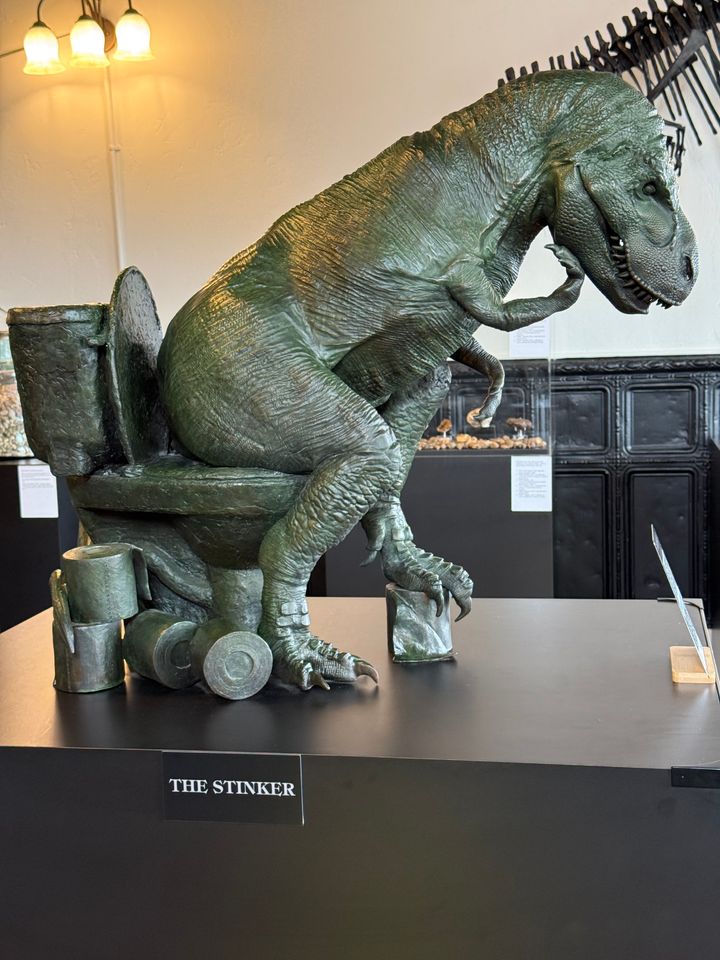
I had never thought about insect flatulence ( surprising , I know), but there was a display of ancient insects caught in amber in mid-flatulence, leaving a distinctive bubble in the amber, preserved forever.
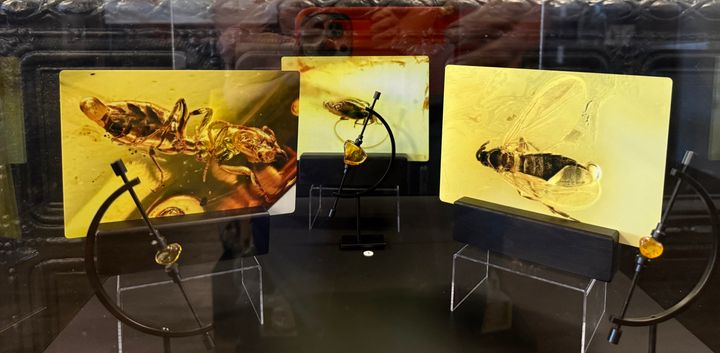

One the great tradition of strange things of Route 66, this was a winner. We headed down to the house.
After finally closing up, it was time to say goodbye to the desert and head North, through, Arizona, New Mexico, Texas, Oklahoma, Missouri, Ohio, Indiana and Michigan into Canada.
The trip would hold some more surprises, and I will cover in part 2
….and then there is a newer establishment.
The Poozeum.
Ever heard of a Coprolite?..well, it is fossilized dinosaur feces.
The museum and store houses all sorts of real examples including the Guinness Book of records example of the largest one ever found.
A bronze sculpture ( not by Rodin) entitled The Stinker greets you on entry.
I had never thought about insect flatulence ( surprising , I know), but there was a display of ancient insects caught in amber in mid-flatulence, leaving a distinctive bubble in the amber, preserved forever.
One the great tradition of strange things of Route 66, this was a winner. We headed down to the house.
After finally closing up, it was time to say goodbye to the desert and head North, through, Arizona, New Mexico, Texas, Oklahoma, Missouri, Ohio, Indiana and Michigan into Canada.
The trip would hold some more surprises, and I will cover in part 2
Essarell said:
Stunning pictures of an incredible landscape, we’re staying at the La Posada next week as part of a trip round the SW.
Good for breakfast and cocktails but the restaurant is expensive for dinner and not great. There are few alternatives but there is a good and cheap Thai place in town which I like a lot. Love the hotel though.DodgyGeezer said:
excellent - we're off doing part of that shortly (sadly the railway hotel/museum was booked for when we're there, hey-ho c'est la vie) so it's interesting seeing a few other things to look at 
Depending on your schedule, when you get to Flagstaff turn West and drive along 66 all the way to Oatman. All sorts of very interesting little towns when you stay on 66 and then drive up the Sitgreaves Pass to Oatman. One of my favourite 66 drives.
Gassing Station | Holidays & Travel | Top of Page | What's New | My Stuff




 . They do have a supermarket for basic supplies and a restaurant.
. They do have a supermarket for basic supplies and a restaurant.